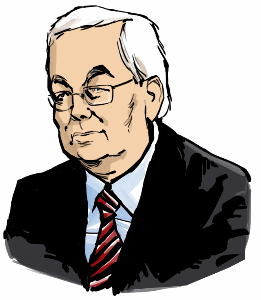© Gunnar Tómasson
9 November 2015
Dedicating The Worke
(King James Bible, 1611)
To the most high and mightie Prince, Iames
by the grace of God King of Great Britaine,
France and Ireland, Defender of the Faith,
The Translators of The Bible, wish Grace, Mercie,
and Peace, through Iesvs Christ our Lord.
***
I. HE saith vnto them, But whom say ye that I/EK AM
(Matt. 16:15-28, KJB 1611)
768729
He saith vnto them, But whom say ye that I am? And Simon Peter answered, and said, Thou art Christ the sonne of the liuing God. And Iesus answered, and said vnto him, Blessed art thou Simon Bar Iona: for flesh and blood hath not reueiled it vnto thee, but my Father which is in heauen. And I say also vnto thee, that thou art Peter, and vpon this rocke I will build my Church: and the gates of hell shall not preuaile against it. And I will giue vnto thee the keyes of the kingdome of heauen: and whatsoeuer thou shalt bind on earth, shall be bound in heauen: whatsoeuer thou shalt loose on earth, shall be loosed in heauen. Then charged hee his disciples that they should tel no man that he was Iesus the Christ. From that time foorth began Iesus to shew vnto his disciples, how that he must goe vnto Hierusalem, and suffer many things of the Elders and chiefe Priests & Scribes, and be killed, and be raised againe the third day. Then Peter tooke him, and began to rebuke him, saying, Be it farre from thee Lord: This shall not be vnto thee. But he turned, and said vnto Peter, Get thee behind mee, Satan, thou art an offence vnto me: for thou sauourest not the things that be of God, but those that be of men. Then said Iesus vnto his disciples, If any man will come after me, let him denie himselfe, and take vp his crosse, and follow me. For whosoeuer will saue his life, shall lose it: and whosoeuer will lose his life for my sake, shall finde it. For what is a man profited, if hee shal gaine the whole world, and lose his owne soule? Or what shall a man giue in exchange for his soule? For the sonne of man shall come in the glory of his father, with his Angels: and then he shall reward euery man according to his works. Verely I say vnto you, There be some standing here, which shall not taste of death, till they see the Sonne of man coming in his Kingdome.
II. Sonne of Man Coming in his Kingdome
(Ten Sefiroth of Kabbalah)
35850¹
2638 = En Sof (Without End)
3025 = Kether (Crown)
2852 = Hokhmah (Wisdom)
1559 = Binah (Intelligence)
1953 = Hesed (Love or Mercy)
1219 = Din (Power)
4209 = Tifereth (Beauty)
3301 = a.k.a. Rakhamim (Compassion)
3514 = Netsakh (Lasting Endurance)
1261 = Hod (Majesty)
2434 = Yesod (Foundation)
3816 =Malkuth (Kingdom)
3391 = a.k.a. Shekinah
677 = Ek („I“ – Author of Njála)
35850
III. Christ’s Taste-of-Death Prophecy
(Saga-Shakespeare Myth)
19157
1825 = Death
-1000 = Darkness
4000 = Flaming Sword
3781 = The Pope
4988 = The Vatican
5463 = “He dyed a Papyst”²
100 = The End
19157
IV. And now at last, by the Mercy of GOD
(From Dedication, KJB 1611)
713722
And now at last, by the Mercy of GOD, and the continuance of our Labours, it being brought vnto such a conclusion, as that we haue great hope that the Church of England shall reape good fruit thereby; we hold it our duety to offer it to your MAIESTIE, not onely as to our King and Soueraigne, but as to the principall moouer and Author of the Worke. Humbly crauing of your most Sacred Maiestie, that since things of this quality haue euer bene subiect to the censures of ill meaning and discontented persons, it may receiue approbation and Patronage from so learned and iudicious a Prince as your Highnesse is, whose allowance and acceptance of our Labours shall more honour and incourage vs, then all the calumniations and hard interpretations of other men shall dismay vs. So that, if on the one side we shall be traduced by Popish persons at home or abroad, who therefore will maligne vs, because we are poore Instruments to make GODS holy Trueth to be yet more and more knowen vnto the people, whom they desire still to keepe in ignorance and darknesse: or if on the other side, we shall be maligned by selfe-conceited brethren, who runne their owne wayes, and giue liking vnto nothing but what is framed by themselues, and hammered on their Anuile; we may rest secure, supported within by the trueth and innocencie of a good conscience, hauing walked the wayes of simplicitie and integritie, as before the Lord; And sustained without, by the powerfull Protection of your Maiesties grace and fauour, which will euer giue countenance to honest and Christian endeuours against bitter censures, and vncharitable imputations.
II + III + IV = 35850 + 19157 + 713722 = 768729
***
¹Karen Armstrong
A History of God
The most influential Kabbalistic text was The Zohar, which was probably written in about 1275 by the Spanish mystic Moses of Leon. As a young man, he had studied Maimonides but had gradually felt that attraction of mysticism and the esoteric tradition of Kabbalah. The Zohar (The Book of Splendour) is a sort of mystical novel, which depicts the third-century Talmudist Simeon ben Yohai wandering around Palestine with his son Eliezar, talking to his disciples about God, nature and human life. There is no clear structure and no systematic development of theme or ideas. Such an approach would be alien to the spirit of The Zohar, whose God resists any neat system of thought. Like Ibn-al-Arabi, Moses of Leon believed that God gives each mystic a unique and personal revelation, so there is no limit to the way the Torah can be interpreted: as the Kabbalist progresses, layer upon layer of significance is revealed. The Zohar shows the mysterious emanation of the ten sefiroth as a process whereby the impersonal En Sof becomes a personality. In the three highest sefiroth – Kether, Hokhmah and Binah – when, as it were, En Sof has only just „decided“ to express himself, the divine reality is called „HE.“ As „he“ descends through the middle sefiroth – Hesed, Din, Tifereth, Netsakh, Hod and Yesod – „he“ becomes „you.“ Finally, when God becomes present in the world in the Shekinah, „he“ calls himself „I.“ It is at this point, where God has, as it were, become an individual and his self-expression is complete, that man can begin his mystical journey. Once the mystic has acquired an understanding of his own deepest self, he becomes aware of the Presence of God within him and can then ascend to the more impersonal higher spheres, transcending the limits of personality and egotism. It is a return to the unimaginable Source of our being and the hidden world of sense impression is simply the last and outer-most shell of the divine reality. (Karen Armstrong, A History of God, Ballantine Books, New York, 1993, p. 247)“
²The religious views of Will Shakspere
“He dyed a Papyst”
The religious views of William Shakespeare are the subject of an ongoing scholarly debate dating back more than 150 years. The direct evidence of William Shakespeare’s religious affiliation indicates that he was a conforming member of the established Anglican Church. However, many scholars have speculated about his personal religious beliefs, based on analysis of the historical record and of his published work, with claims that Shakespeare’s family may have had Catholic sympathies and that he himself was a secret Catholic. Other scholars have speculated that he was an atheist. Due to the paucity of direct evidence, no general agreement has been reached.
[…]
Archdeacon Richard Davies, a 17th-century Anglican cleric, wrote of Shakespeare: „He dyed a Papyst“. 5463 The Catholic Encyclopedia (1912) states that „Davies, an Anglican clergyman, could have had no conceivable motive for misrepresenting the matter in these private notes and as he lived in the neighbouring county of Gloucestershire he may be echoing a local tradition“ but concludes that Davies’ comment „is by no means incredible, but it would obviously be foolish to build too much upon an unverifiable tradition of this kind. (Wikipedia)
***
Calculator for converting letters to cipher values is at:
http://www.light-of-truth.com/ciphersaga.htm

 Gunnar Tómasson
Gunnar Tómasson